Singapore’s current media landscape:
These are the local pages with the highest FB engagements in Singapore for the period Jan 2021 to March 2021. It could be argued that these are the 10 most influential FB pages in the local media scene. State media occupies four spots, two brands are from MediaCorp and two are from SPH.
They are slowing losing ground to new media players – two from TSL, one SGAG, one Mothership, one Malaysian brand (SG foodie) and finally, a wild JJ Lin completes the top 10. On IG, YouTube and TikTok, traditional media has a much weaker presence with just 1-2 brands in the top 50 across those 3 platforms. These stats are from proprietary tech that we built – our data arm insightsRN.com
Background:
- ST announced wanting to spin their media business off as a not-for-profit-entity due to a decline in media revenue. This new media entity would have to rely on funding, and people speculate this would come from the government / taxpayers.
- I am an entrepreneur who founded the TSL media group which includes TheSmartLocal, MS News, Eatbook and ZULA. These 4 new media brands are all profitable and our revenue continues to increase every year.
- Many of my friends who run their own new media businesses in Singapore are also experiencing an upwards trajectory in revenue – a sign that running a new media outfit can be a profitable endeavour.
- SPH’s advertising revenue has dropped because print circulation has fallen due to the advent of smartphones and thus new media consumption patterns. Fewer people read newspapers/magazines every year. Advertising dollars move to where the eyeballs have gone and that is on digital media – Google, Facebook, IG, YouTube, TikTok and so on. (This explains the chart above.) SPH has lost a majority of their revenue to Google/Facebook because they don’t have a product that can come anywhere close to competing against them.
- In the arenas beyond Google/FB where SPH can compete, they face stiff competition from new media. They don’t even have products on YouTube/IG/TikTok – which is insanity, since these are the top 3 social platforms that Singaporeans under 25 use. They only have a commercial presence on FB and even so, their product (content) is weak and has failed to evolve. So SPH’s other brands such as their titles under SPH Magazines, lose market share every year and most will eventually close. Thus, SPH also loses revenue (a much smaller amount) to creative/media agencies, local publishers like us and KOL agencies etc, who beat them in the space outside FB/Google. The amount they lose here grows bigger every year.
- Their biggest competitor is Mediacorp, which they compete with for government funding, among other things. Mediacorp has a much more forward-looking CEO with much better talent in their ranks. I speculate SPH is getting edged out on this front too. Lastly, Mediacorp’s entry into news was very successful – CNA and TODAY are giving ST stiff competition. But ST’s foray into radio / televison has been lacklustre. So SPH’s revenue pie has been reduced even further.
Here’s my long-ass answer to a question from Durwin Ho, that was asked on Facebook.
Q: If advertisers are all flocking to FB and Google, how do you propose for SPH to compete?
The short answer: SPH can compete, but they have to create a better product for their readers and their clients. For the long answer, read on. I’ve presented two solutions.
Disclaimer: My knowledge in this matter is limited. I don’t understand the restrictions SPH faces internally but this is a fun exercise so I’ll try my best as an entrepreneur to come up with a plan to save SPH. These are my personal views and they do not reflect the views of the companies I am from.
Competing with FB/Google is not an easy task. Australia recently found out the hard way after butting heads with FB. They resorted to using legislation against FB, to try and divert revenue back to their news publications. It was a move born out of desperation, that goes against the principles of a free-market economy. This resulted in FB blocking news sites in Australia from posting which caused a huge uproar. Facebook later struck a deal with the government but the whole situation was chaotic and quite clearly showed how Australia was at the mercy of Facebook.
I believe the fundamental way to protect yourself from FB/Google is to isolate the local market from it. Fun-fact: In 2012, SPH made over $1 billion in revenue. So what could SPH have done, given their monopoly and huge cash reserves they had?
How do you save SPH?
Solution 1: Create an ecosystem independent of FB/Google
The extreme example here is China. The common narrative is that they isolated themselves from the world and stole IP (lol) but another perspective could be how they protected their homegrown companies and did a damn good job at that. Instead of Chinese money flowing out to FB/Google, they grew their own local businesses and channelled money back into their own economy.
Imagine how much China would have lost if they allowed Google and FB to set up shop there. They would also be vulnerable to tremendous US influence. The great firewall of China was much ridiculed but it was actually a 200 IQ play and they didn’t end up losing control like Australia. Yea but this will never be accepted here, or in any first-world democracy. So what could SPH have done?
Also read: Move over, WhatsApp: Zalo is Vietnam’s favorite messaging app
What happened in other countries
A less extreme version is something like what Zalo achieved in Vietnam or Kakao in South Korea or LINE / VK in Japan / Thailand. As a result, these countries don’t depend as much on FB. And these messenger apps have expanded their scope to social, with some becoming “Super Apps”. Investing in a messenger app is a natural extension for a big media business. E.g FB acquiring Whatsapp.
SPH had the resources to create a localised ecosystem for Singaporeans, with messenger capabilities and the potential for hilarious localised Umbrage and Ponding sticker packs. But they chose to pump their cash reserves into property. I don’t think it was a bad idea to invest in property but I think it was a horrible idea to invest ALL their funds in property. In April 2019, they announced a $236.5m investment in UK student housing. In Dec 2019, they announced a further $740 million investment in UK accommodation assets. Why not set aside a small percentage like 20% of that 1 billion investment, and use it to secure the future of your media business?
Possible ecosystem synergies
And then there are all these other random investments that SPH made over the years with possible synergies that were never tapped into – they could have used APIs to feed services into this newly created ecosystem.
- Their investment in Carousell + SG Car Mart = digital classifieds.
- Their Chope investment = bookings.
- Their HWZ forms with revamped upvoting mechanics = a more rabak Reddit.
- Their ST premium articles = a FB-like news feed with premium content that is free if you use their app.
Their news feed could be complemented by their magazine titles so their feed would have had variety – if they were able to digitally transition their magazines instead of closing them down and retrenching staff. They could monetise this platform the same way FB does, allowing third-party content creators and businesses, to create content there.
ST has a monopoly on news, so all breaking news would be on that app first, including COVID and election news that was in high demand and this would mean very easy user acquisition.
If SPH created such an ecosystem, it would be used by Singaporeans, like how these platforms are all still used today. Their investments should have been done with a clear transformation plan in mind. And then you would have a super app and you’re protected from FB/Google to some degree. You have revenue + control and some people’s “first page of the internet” is no longer FB, but your app.
And at that point, you might wanna go further and think of digital currency like Grab/Razer and pay later services. This is what Zalo has done with Zalo Pay. In an alternate universe, SPH might have become SEA’s most prized unicorn. lol.
Zalo was so good at isolating Vietnam from FB that it may one day be bought over by them. An ironic read: Zalo: A Super App which might be bought by Facebook
Sure, there will be other challenges like there’s nothing to stop people getting delayed news outside their ecosystem like on Facebook from other news aggregators. And this is where SPH’s investment in younger news titles would come in too, so they have a strong presence on both platforms. And this will also create a further incentive for SPH to produce “quality journalism” which could only be found on their app. This new ecosystem would be like the ultimate “paywall”, but there is no payment, just a wall. The app will be free for users, and the wall would isolate the market from FB/Google, which gives SPH control of the media space similar to what Zalo has done in Vietnam.
Creating such an ecosystem would have required immense entrepreneurial and execution ability. Probably a talent like SCMP’s Gary Liu with some silicon valley experience and then having him make key hires to create a very forward-thinking executive team. Temasek’s Robin Hu also looks like someone with incredible experience and I heard he was a strong proponent of going digital. But instead, they put someone with no media or entrepreneurial experience in charge of transformation. Wait, was transformation even a KPI? Or was it just cost-cutting?
Taking responsibility
Perhaps even now, the higher powers do not understand how badly SPH messed up their digital transformation. If they continue to view it through the lens of how it was impossible to save SPH, then Ng Yat Chung might even be hailed as a martyr, crucified on social media for defending a publication that couldn’t be saved. This was the narrative spun after NOL’s acquisition until French company CMA CGA showed they could turn the shipping company profitable in just 1 year. And I believe SPH can experience a similar turnaround too, with the right talent. But it will definitely take longer.
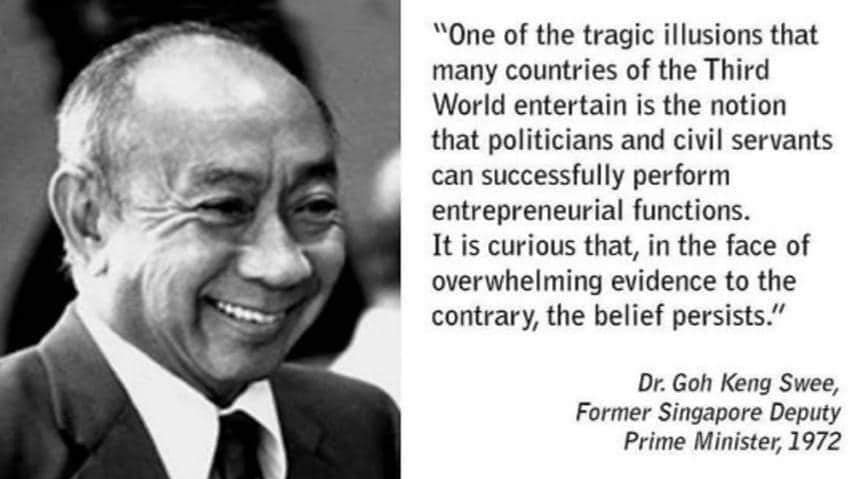 There’s an extremely toxic mindset that flows through SPH right now. You see it in every SPH press release that accompanies their financial results. There’s that belief being paraded that it’s not possible to run a profitable media business in this age. That is BS. And it does a disservice to all current employees of SPH. They have so many young talents who have grown disillusioned due to this lack of leadership. They want to make things work, but they can’t because their management is so resistant to change and their decisions confuse their employees.
There’s an extremely toxic mindset that flows through SPH right now. You see it in every SPH press release that accompanies their financial results. There’s that belief being paraded that it’s not possible to run a profitable media business in this age. That is BS. And it does a disservice to all current employees of SPH. They have so many young talents who have grown disillusioned due to this lack of leadership. They want to make things work, but they can’t because their management is so resistant to change and their decisions confuse their employees.
Outdated management mindsets
An ex-SPH employee told me they acquired HWZ just so they could get their magazine – HWM. They didn’t care about the forums at all, which is still the largest forums in Singapore today. They didn’t know what to do with it and they still don’t. That’s why HWZ is parked under SPH Magazines and not SPH Holdings. Anyone who has ever been to the EDMW forums would probably find this absurd and most Singaporeans probably don’t know HWZ still has a magazine.
Another ex-employee told me how she was puzzled that they gave up a license used to run a small but profitable business unit. Both these employees said that SPH never felt digital was important, and SPH had the single-minded goal of protecting their golden goose – print revenue. So their best talents were moved there. This was the antiquated mindset that prevented their transformation. They needed the vision to place their best talents in high growth areas, instead of print, which we all know is a sunset industry
Yes, SPH has been hit hard by disruption. So what that means is their digital products had to one day make enough revenue to offset the losses from their print arm, for there to be successful digital transformation. If the CEO doesn’t understand digital media, he could have hired someone who does. He could have created a separate arm within SPH that focused on transformation e.g “New SPH” and committed some serious initial investment to it. (More on this below in solution 2.) This division would manage the acquisitions, investments and transitioned digital titles and the KPI would simply be revenue from digital assets. If this was started early, revenue would have surely gone up every year, looking at how all the new media companies in Singapore have grown. And a time might have come when their profit from digital exceeded their losses from print media.
SPH’s media business would have transitioned.
They had so much time to do so. And it is still possible. Do not throw in the towel yet.
As much as people deride SPH for its lack of editorial integrity and innovation, they are still of significant importance to Singapore. Without SPH, we would have much less original news reporting. ST’s journalists are on the ground creating news. Many of the new media titles including our MS News, aggregate news – we negate their paywall and make their news more readable to young people. But without ST, the public would be far less informed and we could end up missing news that impacts public safety e.g COVID reporting.
Solution 2: Create an advertising solution that is competitive with FB/Google
If SPH can’t isolate the market from FB/Google, then the next sensible step is to provide advertisers with competitive options in a Google/FB-dominated landscape. This is a lot easier to execute because SPH is on their knees now, and building a Super App in 2021, is hella ambitious. This solution involves investing in local media companies, to create a unified and holistic advertising solution for this new era. SPH would also be able to leverage on the talents who have excelled in these spaces for years, and if you add all these smaller companies up together, they bring in substantial revenue.
The idea of the Singapore Media Exchange (SMX) for programmatic ad buys is, in theory, good, but it will never take off because it lacks the scaling potential of FB/Google – their reach in its current form cannot compete with that of Google/FB. And under the surface, there is a weird dynamic going on between the joint-owners of the SMX – Mediacorp and SPH.
We have been asked to run ads there, but the rates they offer publishers are uncompetitive and this could be a chicken and egg thing. There are not enough advertisers who find the SMX attractive, therefore publishers on the SMX don’t get good rates and don’t join. So one has to happen first or it will never be competitive, let alone be able to rival FB/Google.
And this reach could be achieved via investment in a variety of local media. No more buying up UK hostels pls. When advertisers don’t spend with Google/FB, their digital ad spending usually goes to these media companies.
- Acquisition or investment in a creative / media agency that controls media spending – think huge 7-8 figure deals and WOG master contracts.
- Acquisition or investment in a regional tech-powered solution like AdAsia to control programmatic inventory and so there are economies of scale as well. Singapore is too small and this tech scales well.
- Acquisition or investment in an influencer agency like Kobe and a talent development program for IG/TikTok/YouTube stars all signed under them.
- Acquisition or investment in the most viewed new media brands on FB. Move those talents into building new properties and transforming legacy SPH products successfully.
- Acquisition or investment in the most viewed channels on YT that could also scale with sub-channels.
And it isn’t hard. From what I heard, one of the biggest news sites in Singapore was shopping around to sell itself for just $10m about 4-5 years ago, when their runway was ending. And I hear SPH wishes they could have created that site. Today, this site is very profitable so good luck with ever getting that sort of valuation again.
Investing for the future
Remember how SPH made $1 billion in 2012? 5 years ago, a 100m investment could have led to buying up or investing in all the new media competition out there, kinda like what MediaPrima did in Malaysia. And then SPH’s digital transformation would have been very successful. If management had the humility and the vision, they would have created an amazing success story. Looking at the increase in value of these local media brands today, SPH’s investor ROI would be through the roof – and these media companies would have grown even more with SPH’s backing.
I know some of these brands are still looking for buyers and their prices are reasonable. So it still isn’t too late. These local companies all make a profit in the FB/Google climate and SPH would acquire their talent too.
But instead, SPH tried to create these properties on their own, then failed and gave up. They tried to create a food title that went nowhere, they tried to create an SGAG clone called Stirr, a half-baked misadventure that failed big time after burning resources for 2+ years. They tried to rebrand STOMP but couldn’t and the list goes on. They even invested a lot in technology, trying to create their own search engine called Rednano back in 2009, that would compete with Google. How could anyone think that was a good idea?
SPH needs to play catch-up very quickly and start growing multiple media divisions – the areas where all non- FB/Google money is flowing to. Through investments, they could leverage on proven talent across agencies, ad-tech, new media and video production – then train a whole new generation to be ready for the future. There is still a window for this to happen, but once it closes, they would forever have to depend on funding and their editorial integrity will always be questioned.
What could have been
What SPH could have had was a competitive advertising solution for clients. Ultimately, clients gravitate towards a better product. They could have had programmatic buying for banners, branded content, IGs, TikToks etc the full works. SPH might have been able to control perhaps 80% of all content from publishers that Singaporeans see. They could have secured their future in media for the next 20 years.
No more victimising themselves and blaming circumstances because the reality is, despite FB/Google, all the top new media sites in Singapore are making more revenue every year, partly thanks to traditional media’s inability to evolve. If SPH was able to adapt, new media sites like ours would not even exist.
And as a massive media group, clients would get preferential rates and targeting that is better than FB so money that was intended for FB/Google might have been channelled into this SMX ver 5.0 instead. It would be a better alternative for clients as they could utilise every digital marketing possibility in Singapore, at a better rate than anywhere else.
Okay that was a very long answer to a very short question, but that was my two cents and it was time to update my blog 🙂
Want to get in touch? Drop me an email here.
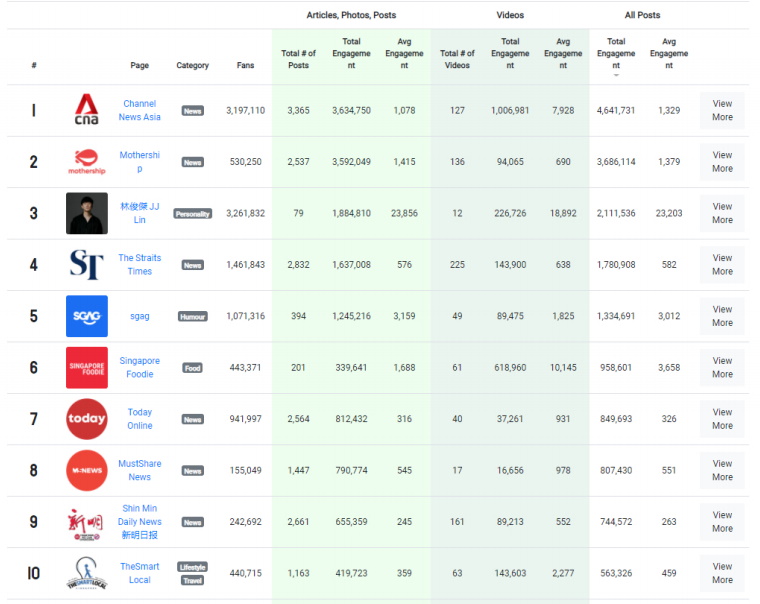

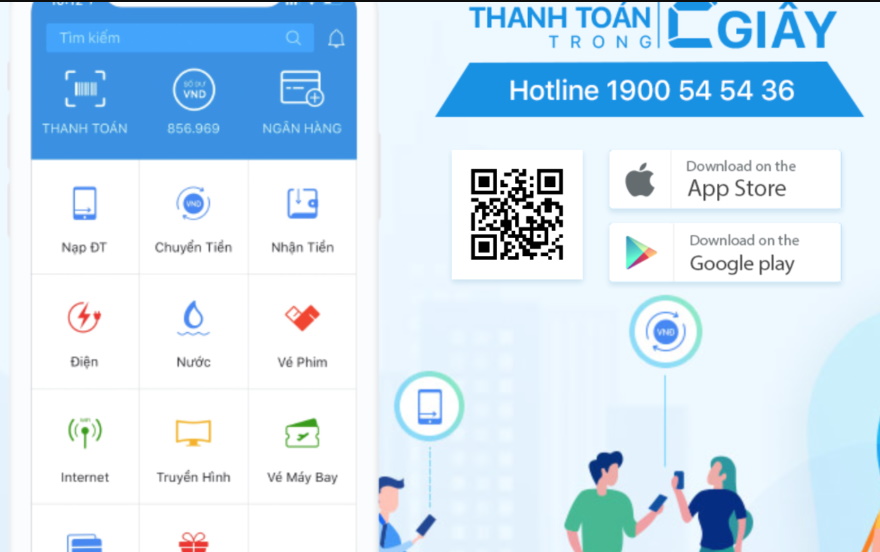
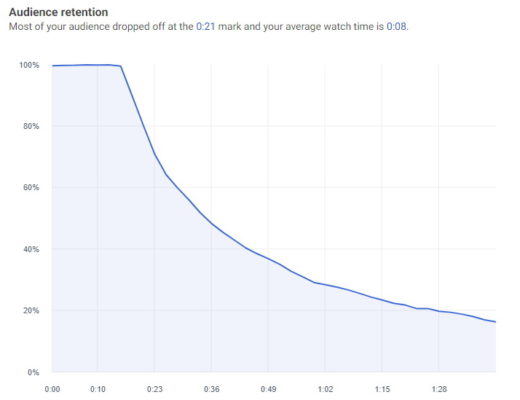

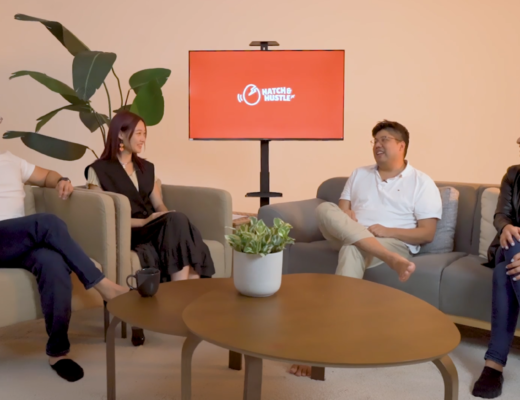
Comments